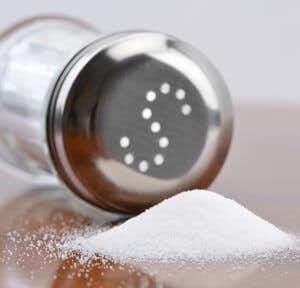
Large public health organizations are a lot like ocean liners: It takes a lot of time to get them to change course. The most recent example is the Centers for Disease Control and Prevention (CDC) policy on salt.
Is Sodium a Threat to Public Health?
The leadership has determined that sodium is a public health enemy and has declared that everyone over 50 should keep their daily sodium intake below 1,500 mg. The American Heart Association (AHA) goes further than the CDC and insists that
“all Americans [should] reduce the amount of sodium in their diet to less than 1,500 mg a day.”
Most people don’t have a clue what 1,500 mg represents. To get this low, you would have to avoid most prepared foods, shun bread, pizza, crackers and cookies, stay away from canned food and never use a salt shaker. Chicken soup would taste little better than dishwater.
What Is the Evidence for Severe Salt Restriction?
In theory, reeducating the taste buds to accept such a draconian diet should lower blood pressure and dramatically cut the likelihood of a heart attack or stroke. How well does the evidence support severe salt restriction?
Scientists at Emory University have just published an observational study (Health ABC) that followed 2,642 older Atlantans for ten years (JAMA Internal Medicine, online Jan. 19, 2015). The volunteers were in their seventies at the start of the study and they all filled out detailed questionnaires that allowed the investigators to calculate their daily sodium consumption.
During the study decade, some of these old people died. The researchers did not find that those consuming the least sodium were significantly less likely to die or to develop heart disease. In other words, there was no apparent benefit from following the CDC sodium guidelines.
This is just the latest study that has failed to support those recommendations. Last year, a meta-analysis of 25 previous research papers showed an association between the lowest sodium intake and an increased risk of death (American Journal of Hypertension, Sept., 2014).
The Institute of Medicine Weighs In:
You’d think that such findings would make people at the CDC and the AHA reevaluate their enthusiasm for having everyone lower their salt intake dramatically. The prestigious Institute of Medicine published a report showing a lack of evidence supporting these low-sodium recommendations (JAMA Internal Medicine, Jan., 2014). According to the analysis, when people with high blood pressure, kidney or heart disease or diabetes actually get their sodium intake down to recommended levels, below 1,500 mg/day, they may suffer harm.
Why Might Low Sodium Intake Be Risky?
Is there any explanation for such a paradox? Some experts suggest that a very low-sodium diet may stimulate a hormonally induced stress reaction that can actually complicate heart failure, increase the risk of type 2 diabetes and make thyroid disease worse (American Journal of Medicine, Nov., 2013).
The People’s Pharmacy Perspective on Salt:
Given the lack of convincing evidence that a low-salt diet (below 1,500 mg of sodium daily) is helpful for most people and research suggesting it could be harmful for some, perhaps it is time the CDC and the AHA consider readjusting their course. It may take time, but the outcome might be healthier. Before changing your own dietary habits, however, it makes sense to check with your doctor.

